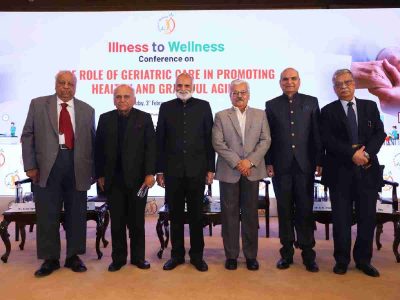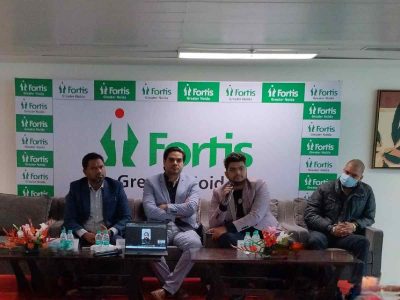The US Supreme Court, in June, decided to end the constitutional right to abortion, by overturning a historic 1973 Roe v Wade decision that gave women absolute rights over their bodies. This created a wider rift between the pro-life and pro-choice groups. Rishika Sharma, a Gender Studies research student at Delhi University says that criminalizing abortions doesn’t bring down the number of abortions; instead, it causes a rise in unsafe abortions.
India has had an abortion law in place since 1971, which was amended in 2021 to accommodate the rights of women. Yet, according to the United Nations Population Fund’s State of the World Population Report (2022), unsafe abortions are the third leading cause of maternal mortality in India. Delhi accounts for almost 30% of these deaths, posing the question of how safe and smooth are the abortion practices here.
Manisha*, a customer service associate at a corporate company in Gurugram, was seven weeks pregnant when she took the pregnancy test and immediately decided to get an abortion. “I was not even sure if I wanted to marry my boyfriend at that time. How was I supposed to give birth to his child? Also, had I told my parents about it, they would have married me off – either to my then-boyfriend or to a stranger. So abortion was imminent”, she says.
When Manisha broke the news to her then-boyfriend, he dumped her. “I was just 21; he was 24 and earning well. But he left me alone in that situation.”
Several women have lived the same story as that of Manisha, says gynaecologist Aarti Srivastav. “Men don’t want the responsibility. They just abandon the pregnant woman”, she says.
When Manisha went to consult a gynaecologist in Lajpat Nagar, she was denied any help since she did not have a male companion with her. “The law doesn’t require a woman to have a male companion. But I was forced to get one. I couldn’t involve my brothers or male friends, so I kept searching for other gynaecologists. It was mentally exhausting”, she says.
According to the Ministry of Health and Family Welfare (MoHFW), medical termination of pregnancy (MTP) is legal if it’s up to 20 weeks or five months of pregnancy, has the approval of a doctor and is performed by medical professionals at recognized medical institutions.
MoHFW also states the criteria for different stages of the pregnancy: if it is terminated up to 12 weeks, it requires the opinion of one doctor; between 12 to 20 weeks, it needs the opinion of two doctors. The Medical Termination of Pregnancy (Amendment) Bill 2021 states that terminating a pregnancy between 20-24 weeks can be legal only if continuing the pregnancy can cause mental or physical harm to the mother, or the child.
Explaining how the law is flexible, lawyer Ashutosh Batra says, “A woman can legally get an abortion if the pregnancy is causing grave danger to the physical/mental health; there are foetal abnormalities; the woman was raped or coerced into having sex; and contraceptive failure. The conditions might seem like an exhaustive list, but the law is quite flexible and covers almost all the situations a woman might want to get an abortion in.”
However, Sharma points out that the woman has no autonomous right to her body as she still needs the registered medical practitioner (RMP) to approve her reasoning and request of getting an abortion – something which reflects in Manisha’s case.
“Since we need the doctor’s stamp of approval to get an abortion, and mine wasn’t a case that fit the MTP law explicitly, one gynaecologist asked for extra money to proceed with the abortion”, she says.
An abortion using a pill or tablet costs Rs 5,000 on average, which includes the cost of consultation and pills. The process requires consuming two pills – one is administered in the presence of a doctor, and the other is consumed 24 hours later, not necessarily in the presence of the doctor. A surgical abortion – usually recommended for pregnancy above eight weeks – costs Rs 10,000 – Rs 12,000, which includes the cost of consultation, sonograms and surgery.
“I was 11 weeks pregnant at the time and was recommended surgical abortion by all the gynaecologists I consulted. I couldn’t afford the ‘bribe’ money they were asking for and kept searching”, Manisha says. She adds that another gynaecologist she went to was extremely judgmental.
“He questioned my character, family background and dignity. He insulted me and said that I was ‘immoral’ for having sex with someone before marriage. I was very scared during that consultation session and was anxious about consulting another doctor anytime soon”, Manisha adds.
Pooja* was nine weeks pregnant when she approached a female doctor for an abortion. But Pooja too was judged and insulted by her. “When I sensed judgment in the doctor’s tone, I called her out. She retaliated by calling me an ‘easy’ woman who will just about sleep with any man. I felt very unsafe. If a woman could say this, what are the male doctors of Delhi saying?”, Pooja wonders.
Another concerning factor is most private clinics in Delhi do not maintain an official record of the abortions conducted. Saima* had opted for surgical abortion. When she reached the clinic with her fiance, she was given a few forms to fill up. “My brother is a doctor, and I didn’t want him to find out in the least possible scenario that I had to get an abortion. So I wrote down the wrong name and address. When the nurse came to escort me, she took the documents and kept them in a rather untouched pile of papers near the reception. No one bothered that the name didn’t match the voter ID card I had shown”, she said.
Two days after discharge, Saima noticed that her abdomen had swollen and she was bleeding profusely from her vagina. “When I visited the clinic again, there was a different nurse on duty. She refused to help me out because she couldn’t find the forms with my real name on them, nor did she recognize me. I couldn’t contact the doctor and the anesthesiologist”, she states.
On condition of anonymity, a nurse at a private health facility in Hauz Khas attests that they do not find it necessary to match the name of the patient with their government-issued ID card, as most of these abortions are opted for by women who don’t have a strong legal case but still want to terminate the pregnancy. “The doctors care about the money that is coming in, not the legal mess”, she says.
Since there was no official record of Saima getting a surgical abortion at the facility, it highlights the issue of how many such abortions – either ending up with the woman being safe or not – go unrecorded.
Srivastav points out, “This woman (Saima) was alone, with no one by her side. What if the surgery had complications? What if there was some shady business going on in the facility? How are we to ensure the safety of these women? The administration must fish out such doctors and facilities and instead provide better, non-judgmental care to the women seeking an abortion. Just the thought of getting an abortion is mentally exhausting, imagine the toll it takes on someone when they go through this ordeal.”
While Manisha and Saima’s experiences with abortions in Delhi – which resonate with several other women in the national capital – were neither safe nor smooth, there are several other women who have had no trouble getting an MTP. Vasundhara Bhatia, 37, says, “My husband and I were not ready for a child and decided to get an abortion. We got the surgery done within a week. There were no obstacles; the medical staff was helpful and caring, and I just suffered two days of menstrual cramps”, she says.
Sharma points out that experiences of abortion in the national capital vary across the financial and social strata of society. “Those rich, married and literate crowd don’t go through multiple issues. But those who are unmarried, are financially dependent on someone and do not enjoy a good social status, will be met with a hassle for the same procedure of abortion. The law doesn’t differentiate between the people, but the system does; it exploits the weak. It is judgmental and acts on stereotypes”, she says.
*Names changed to protect identities
For more stories that cover the ongoings of Delhi NCR, follow us on:
Instagram: https://www.instagram.com/thepatriot_in/
Twitter: https://twitter.com/Patriot_Delhi
Facebook: https://www.facebook.com/Thepatriotnewsindia





